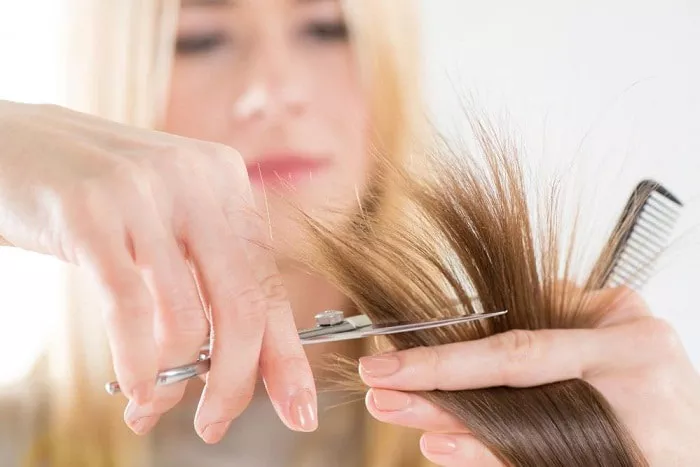Hair thickness is a topic of much debate. Many people believe that cutting your hair makes it thicker. But does it? In this article, we will explore the myths and realities of hair thickness. We will look at the science behind hair growth and thickness. We will also discuss practical ways to maintain healthy, thick hair.
Exploring the Myths and Realities of Hair Thickness
The Myth: Cutting Hair Makes It Thicker
Many people think cutting hair makes it thicker. This belief comes from noticing thicker-looking hair after a haircut. When hair is cut, the blunt ends can make it appear fuller. But this does not mean the hair itself has become thicker.
The Reality: Hair Thickness Is Genetic
Hair thickness is determined by genetics. The number of hair follicles on your scalp is fixed. Each follicle produces one hair strand. The thickness of each strand depends on genetic factors. Cutting your hair does not change the number of follicles or the thickness of each strand.
Understanding Hair Growth
Hair grows from follicles in the scalp. Each follicle has a cycle of growth, rest, and shedding. The hair shaft, which is the visible part, grows from the follicle. Cutting the hair shaft does not affect the follicle. Therefore, cutting hair does not impact the hair’s inherent thickness.
The Appearance of Thickness
While cutting hair does not make it thicker, it can make it look thicker. When hair grows out, it can become thin and wispy at the ends. Trimming these ends gives hair a fuller appearance. This is because the blunt ends reflect light better and look more substantial.
SEE ALSO: How to Prevent Hair from Thinning?
Hair Care for Thickness
Maintaining healthy hair can help it appear thicker. Here are some tips for hair care:
1. Regular Trims
Trimming your hair every 6-8 weeks helps maintain its shape. It removes split ends and prevents breakage, making hair look healthier and thicker.
2. Proper Nutrition
A balanced diet rich in vitamins and minerals promotes hair health. Vitamins like A, C, D, and E, and minerals like iron and zinc, are essential for hair growth.
3. Gentle Hair Care
Avoid harsh shampoos and conditioners. Use products suited for your hair type. Be gentle when washing and brushing your hair to prevent damage.
4. Avoid Heat and Chemical Damage
Minimize the use of heat styling tools. Excessive heat can weaken hair and cause breakage. Similarly, avoid harsh chemical treatments that can damage hair.
5. Scalp Care
A healthy scalp is crucial for hair growth. Keep your scalp clean and free from excess oil and dandruff. Regular scalp massages can stimulate blood flow and promote hair growth.
The Role of Hair Products
Using the right hair products can enhance the appearance of thickness. Here are some types of products to consider:
1. Volumizing Shampoos and Conditioners
These products are designed to add volume to your hair. They often contain ingredients that coat the hair shaft, making it appear thicker.
2. Leave-In Conditioners
Leave-in conditioners provide extra moisture and protection. They can help reduce frizz and add shine, giving hair a fuller look.
3. Thickening Sprays and Mousses
These products add texture and body to the hair. They can be applied to damp hair before styling to enhance volume.
4. Hair Oils and Serums
Oils and serums can nourish the hair and add shine. They help smooth the hair cuticle, reducing frizz and making hair appear healthier and thicker.
Hairstyles for Thicker-Looking Hair
Choosing the right hairstyle can also make a difference. Here are some tips for hairstyles that enhance the appearance of thickness:
1. Layered Cuts
Layers can add volume and movement to your hair. They create the illusion of thickness by adding dimension.
2. Blunt Cuts
Blunt cuts give hair a fuller appearance. The straight edges make the hair look more substantial.
3. Shorter Styles
Shorter hairstyles can make hair look thicker. Pixie cuts, bobs, and lobs are great options for creating a fuller look.
4. Curls and Waves
Adding curls or waves can enhance volume. They create texture and body, making hair look thicker.
Debunking Common Myths
There are many myths about hair thickness. Let’s debunk some of the most common ones:
1. Shaving Your Head Makes Hair Grow Back Thicker
Shaving does not affect the hair follicle. Hair may seem thicker when it grows back because the blunt end of the hair shaft is more noticeable.
2. Frequent Haircuts Make Hair Grow Faster
Hair grows at a set rate, usually about half an inch per month. Frequent haircuts keep hair healthy by removing damaged ends, but they do not speed up growth.
3. Plucking Gray Hairs Causes More to Grow
Plucking one gray hair will not cause more to grow. However, it can damage the follicle, leading to hair not growing back at all.
Embracing Your Natural Hair
Understanding that hair thickness is largely genetic can help you embrace your natural hair. Focus on maintaining healthy hair rather than trying to change its natural thickness. Healthy hair, regardless of its thickness, looks beautiful and vibrant.
Conclusion
Cutting your hair does not make it thicker. Hair thickness is determined by genetics and the number of hair follicles you have. While haircuts can make hair appear fuller, they do not change the hair’s inherent thickness. Maintaining healthy hair through proper care, nutrition, and the right products can enhance its appearance. Embrace your natural hair and focus on keeping it healthy for the best results.
By following these tips and understanding the science behind hair growth, you can achieve a healthy, full-looking head of hair.
You May Be Interested In

